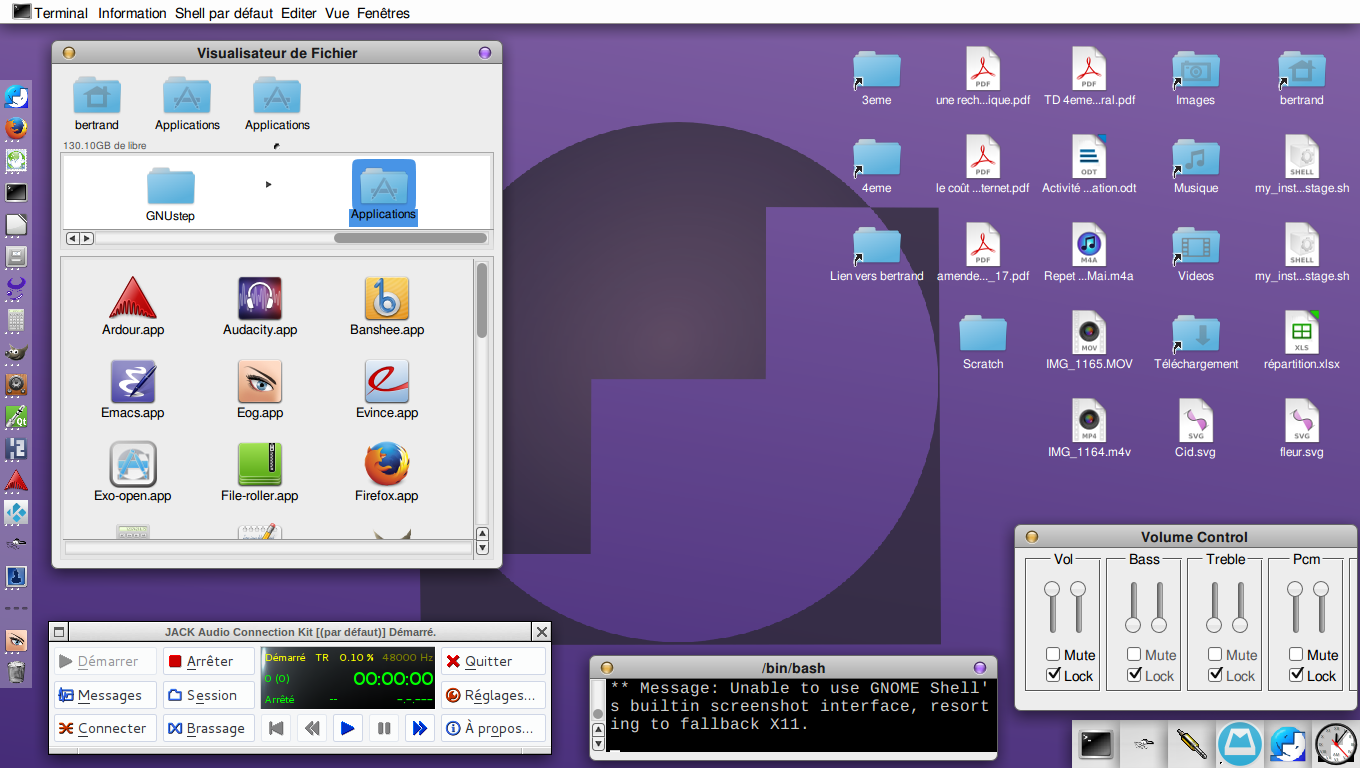
- #Compile open source mac os app for linux with gnustep mac os x#
- #Compile open source mac os app for linux with gnustep windows#
Hence why it has utterly destroyed the server market. Open source succeeds in many aspects like robustness, hardware compatibility, longevity and transparency/deep trust.

And to be fair it's equally true in the opposite direction. And depending on your priorities, the advantages might outweigh the disadvantages or vice versa. This has major advantages as well as major disadvantages. The achilles heel of the open source community stems from the lack of a unifying vision and a top-down approach. But I value my time and I'm sorry to proponents of other platforms, but macOS just values my time more than any other platform. The idea of running Mac apps in a Wine-like compatibility layer sounds worse than anything Apple could ever do to macOS.
#Compile open source mac os app for linux with gnustep mac os x#
Yes, they did start to go a bit loopy and off-track around Mac OS X 10.7–10.9, but from my vantage point it has been all uphill again since Mavericks. I use Linux extensively, but I'm not aching to leave macOS as my primary platform. Navigable by non-experts, even when things turn to shit Singular UI/UX vision eliminates points of confusion and everything-is-a-compromise choices for third party developers System-wide UI consistency, especially in the fine details The problem with replacing MacOS is that its key value lies in aspects that the open source community have yet to succeed in, or are structurally unfit to succeed in. Such anxieties would be alleviated sometime during 2001-2003 when Mac OS X was released and started gaining popularity, but by then KDE and GNOME (and their respective underlying GUI toolkits) were firmly established in the Linux desktop ecosystem, and to this day they remain the dominant Linux desktops, and many less popular desktops still rely on Qt or GTK. There may have also been much uncertainty in 1997 following Apple's purchase of NeXT about the future of OpenStep.
#Compile open source mac os app for linux with gnustep windows#
Here's my thoughts: maybe in 19 the OpenStep API might not have been attractive to developers in a world where Windows completely dominated the desktop, but this doesn't explain the decision of the KDE developers to use Qt instead of GNUstep (as well as the decision of the GNOME developers to use GTK+). I was just a kid during the mid-1990s, but KDE and GNOME took off around this time while GNUstep kept pressing on. At the risk of going off topic, I still don't understand why GNUstep never seemed to have reached critical mass despite all these years of development. However, the last time I looked into this matter, GNUstep still has quite a way to catch up to macOS Mojave's version of Cocoa. Also, with many Mac users expressing anxieties about the future of the Mac given Apple's business decisions under Tim Cook, a combination of Darling and GNUstep would provide Mac users an option to still use the apps they have invested in, just in case Apple neglects the Mac or makes radical decisions that would negatively impact Mac users. This would provide a means to run Cocoa apps on Linux, which will make Linux a more attractive operating system for prospective Mac converts and may also increase the popularity of GNUstep.

What would be amazing is if Darling could join forces with the long-running GNUstep project in order to provide access to the Cocoa APIs.


 0 kommentar(er)
0 kommentar(er)
